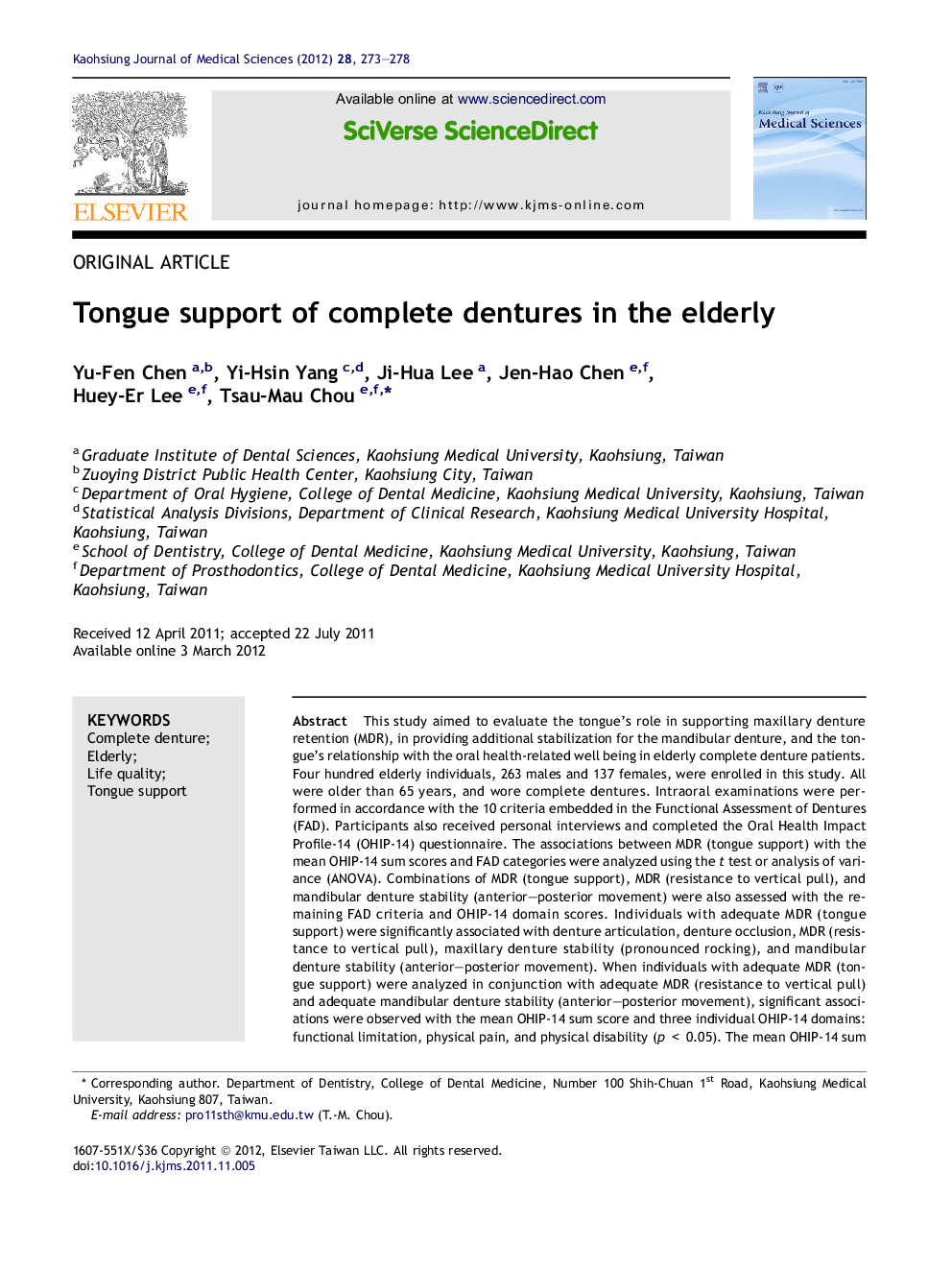| کد مقاله | کد نشریه | سال انتشار | مقاله انگلیسی | نسخه تمام متن |
|---|---|---|---|---|
| 3486311 | 1596959 | 2012 | 6 صفحه PDF | دانلود رایگان |

This study aimed to evaluate the tongue’s role in supporting maxillary denture retention (MDR), in providing additional stabilization for the mandibular denture, and the tongue’s relationship with the oral health-related well being in elderly complete denture patients. Four hundred elderly individuals, 263 males and 137 females, were enrolled in this study. All were older than 65 years, and wore complete dentures. Intraoral examinations were performed in accordance with the 10 criteria embedded in the Functional Assessment of Dentures (FAD). Participants also received personal interviews and completed the Oral Health Impact Profile-14 (OHIP-14) questionnaire. The associations between MDR (tongue support) with the mean OHIP-14 sum scores and FAD categories were analyzed using the t test or analysis of variance (ANOVA). Combinations of MDR (tongue support), MDR (resistance to vertical pull), and mandibular denture stability (anterior–posterior movement) were also assessed with the remaining FAD criteria and OHIP-14 domain scores. Individuals with adequate MDR (tongue support) were significantly associated with denture articulation, denture occlusion, MDR (resistance to vertical pull), maxillary denture stability (pronounced rocking), and mandibular denture stability (anterior–posterior movement). When individuals with adequate MDR (tongue support) were analyzed in conjunction with adequate MDR (resistance to vertical pull) and adequate mandibular denture stability (anterior–posterior movement), significant associations were observed with the mean OHIP-14 sum score and three individual OHIP-14 domains: functional limitation, physical pain, and physical disability (p < 0.05). The mean OHIP-14 sum score was lower among individuals with both adequate MDR (tongue support) and inadequate MDR (resistance to vertical pull) than among participants with both inadequate MDR (tongue support) and inadequate MDR (resistance to vertical pull). MDR (tongue support) demonstrated significant differences from denture occlusion, denture articulation, MDR (resistance to vertical pull), maxillary denture stability (pronounced rocking), and mandibular denture stability (anterior–posterior movement). MDR (tongue support), in conjunction with both adequate MDR (resistance to vertical pull) and adequate mandibular stability (anterior–posterior movement), were significantly associated with the individuals’ oral health-related well being.
Journal: The Kaohsiung Journal of Medical Sciences - Volume 28, Issue 5, May 2012, Pages 273–278